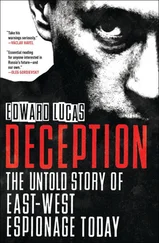The outline of these efforts was already known before the Snowden leaks, even if the code-names and techniques were not. The best-known programme, PRISM, stems from the Bush-administration Protect America Act. It collects data from companies under Section 702 of the Foreign Intelligence Surveillance Act (FISA) Amendments Act 2008. The physical and digital monitoring of individuals is supervised both by congressional committees and by the Foreign Intelligence Surveillance Court (also known as the FISA court). [38] ‘NSA slides explain the PRISM data-collection program’, Washington Post , June 6, 2013, http://www.washingtonpost.com/wp-srv/special/politics/prism-collection-documents . Already in 2005 the New York Times revealed how the Bush administration had secretly authorised the NSA to eavesdrop on communications within the country (of Americans and others), without specific court authorisation. This sparked a big discussion inside America, but little controversy abroad. See ‘Bush lets U.S. spy on callers without court’, http://www.nytimes.com/2005/12/16/politics/16program.html?pagewanted=print&_r=0
The NSA must seek a warrant from this court if it believes that there is a greater than 50% chance of an American ‘person’—ie citizen or resident—having their privacy breached.
The greater the secrecy of these programmes and capabilities, the better chance they have of tackling terrorists, criminals, enemy spies or other targets. From a taxpayer’s and citizen’s point of view, they represent good value for money (or at least they did until exposed and rendered useless by Snowden and his friends). The agencies can deal with complex plots hatched by well-organised outfits, and, in terrorism, with lone-wolf threats from obscure individuals who may have only the most tangential connections to known plotters. If the American administration decides that it urgently needs more information about adversaries with connections in Panama, or Papua New Guinea, or Paraguay, or Peru, or Poland, the NSA should not start from scratch. It should have capabilities which it can use immediately.
Unless you believe that the United States, Britain and other countries are inherently evil, it is hard to argue that their intelligence agencies should not develop the maximum capabilities available to them—especially as adversary countries are doing exactly the same. Whether they use those capabilities is a matter for political decision-makers and subject to judicial and legislative oversight.
Revelations about the size and scope of collection programmes may seem shocking. But they should not really be surprising. Elected governments of all political stripes in all big Western countries have given these agencies many billions of dollars or euros or pounds of their taxpayers’ money. The rough size of their budgets is as well known as their huge buildings. Anyone with more than a passing interest in intelligence or security knows that the capabilities are vast too. If they were not, it would be a scandalous waste of public money.
The vulnerability of the NSA’s actions was not that they were illegal, but that they were secret. Experts and specialists had a rough idea of what was going on. The general public (and even some lawmakers and officials) did not. As David Cole, a law professor, wrote in a recent New York Review of Books article,
…the meta-data programme was blessed by all three branches. The Bush administration instituted it and Obama maintained it. Fifteen federal judges on the FISA court declared it lawful. And Congress reauthorised the Patriot Act provision upon which the programme was based. [39] http://www.nybooks.com/articles/archives/2014/feb/06/three-leakers-and-what-do-about-them/?pagination=false
Imagine the following questions being posed in early June 2013: ‘Does the NSA have the ability to read an e-mail if it really wants to? Does it have means to get round commercially available encryption? Does it cooperate with other intelligence agencies? Does it have the means to tap into international fibre-optic cables? Does it store electronic information in order to search it later if necessary? Were these capabilities envisaged at the time the relevant laws were drafted?’ To all these questions the honest answer would have been ‘yes’. [40] The same questions could be posed of the programmes that collect satellite imagery (a subject which is still awaiting a devastating leak). American satellites are powerful enough to track an individual walking down the street, anywhere in the world (assuming it is a sunny day). Those who argue against the NSA’s capabilities presumably want the satellites blinded too.
What Snowden has done is give a level of detail confirming these suppositions, coupled with, from his allies, a level of spin that verges on the hysterical, and doses of accidental or deliberate misinterpretation (as in the case of allegations that millions of telephone calls in Norway had been intercepted by the NSA). [41] John Naughton, ‘Edward Snowden: public indifference is the real enemy in the NSA affair’, The Observer , October 20, 2013, http://www.theguardian.com/world/2013/oct/20/public-indifference-nsa-snowden-affair
A more sensible question concerns not the capabilities but how they are exercised. Is it really worth spying on Angela Merkel’s phone? Is the risk of the collection proportionate to the gain? These are hard questions for spy chiefs and their political masters. (The administration has now indicated that it will stop snooping on friendly foreign leaders’ communications.) But to portray the NSA and its partner services, as Greenwald does, as akin to East Germany’s Stasi, or to the KGB, and claiming that they have the ‘literal’ goal to ‘eliminate privacy globally’ [42] See Greenwald’s keynote, https://www.youtube.com/watch?feature=player_embedded&v=xEJIR0-KJu0#t=2537
is an extraordinary claim, which requires extraordinary evidence. So far, nothing of the kind has been forthcoming.
As Snowden’s ‘Christmas message’ broadcast on Britain’s Channel Four television stated:
A child born today will grow up with no conception of privacy at all. They’ll never know what it means to have a private moment to themselves: an unrecorded, unanalysed thought. And that’s a problem because privacy matters, privacy is what allows us to determine who we are and who we want to be. [43] http://www.channel4.com/programmes/alternative-christmas-message/4od
But this is a huge exaggeration. What the Snowden documents do appear to show is that the NSA and allied agencies have, unsurprisingly, colossal abilities when it comes to collecting and storing meta-data. They are also able to crack or sidestep a lot of commercially available cryptography. Moreover, if they have you in their sights, they have in principle the ability (though not necessarily the time, or the authority) to find out anything about you that you store or communicate online. Those are impressive capabilities. But they do not mean that they can target everyone (nor, their defenders would argue, do they want to). Being able to see who has communicated with whom is not useful in itself. It is a good way of finding suspects to target. Such targeting may in turn need political approval or a court order. And it is does not mean that everyone is targeted. As the American blogger Bob Cesca argued:
Activists like Snowden want you to believe that NSA is directly, and without court approval, spying on you personally, because hyperbole like this feeds an agenda that involves scaring anyone susceptible to anti-government paranoia. But this quote from Snowden goes beyond anything we’ve read about so far, saying point blank that the government is watching everything we do.
Читать дальше












